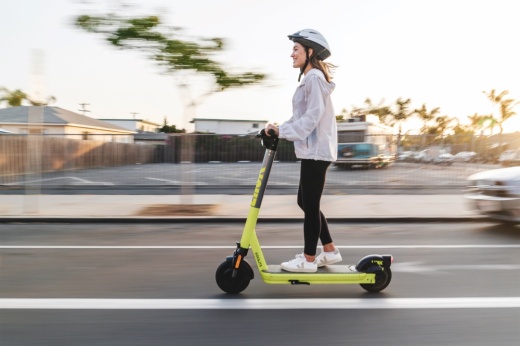City officials plan to soft-launch the new scooter program May 24 before officially launching it May 31, according to a memo from Assistant City Manager Robert Perez.
Long story short: This time around, the city will implement stricter rules and regulations to combat the backlash the previous scooter program faced. Jessica Scott, bicycle and micromobility manager for the Dallas Department of Transportation, previously told Community Impact that city officials will evaluate the scooter program every 90 days to measure its successes and failings.
Despite opposition to the city’s previous electric scooter program, Scott said electric scooters are an important mobility option.
“We live in such a car-centric society that requires people to be able to physically drive a car, afford a car, afford the insurance and maintenance,” Scott said. “Providing options for other modes of transportation makes everything in someone’s life more accessible. It just provides more choice and freedom for residents.”
The backstory: In 2020, Dallas City Council banned electric scooters from the city, citing concerns about public safety. Common complaints about the scooters included riders parking them incorrectly or driving too fast and an overabundance of scooters cluttering city streets.
In June 2022, Dallas City Council approved new regulations for scooter usage, getting the city moving on reactivating the program. The electric scooter program was previously expected to launch in February but faced delays with finalizing contracts and data programming, Scott said.
The specifics: Under the new program, electric scooters will only be allowed to operate from 5 a.m. to 9 p.m., and riders must be age 16 or older. Riders will face a citywide speed limit of 20 mph.
All new users will be required to view training materials on how to operate electric scooters when they register to use a vehicle through the vendor’s app, officials said. The training materials will include instructions on how to properly ride and park a vehicle.
Terms to know: To help manage the scooter program, the city has implemented “no-ride” and “slow-ride” zones.
- No-ride: These zones include sidewalks, trails, parks, plazas, or any roads with a speed limit of 35 mph or higher. In no-ride zones, riders must dismount their vehicle and walk through the designated area, or their scooter will automatically shut off.
- Slow-ride: These zones, which are scattered across the city, will limit riders’ speed to 10 mph. Scooters will automatically slow down to the required speed when traveling through slow-ride zones.
At the beginning of its relaunch, the electric scooter fleet will include:
- 1,350 standing scooters
- 100 seated scooters
- 45 electric bicycles
- Five assisted scooters
One more thing: Before the scooter soft launch, the city will launch a new service request category for its 311 help line that will allow city officials and community members to report any scooter-related issues, according to the memo from Perez.
For more information about the electric scooter program, read Community Impact’s previous coverage or visit the city of Dallas website.





